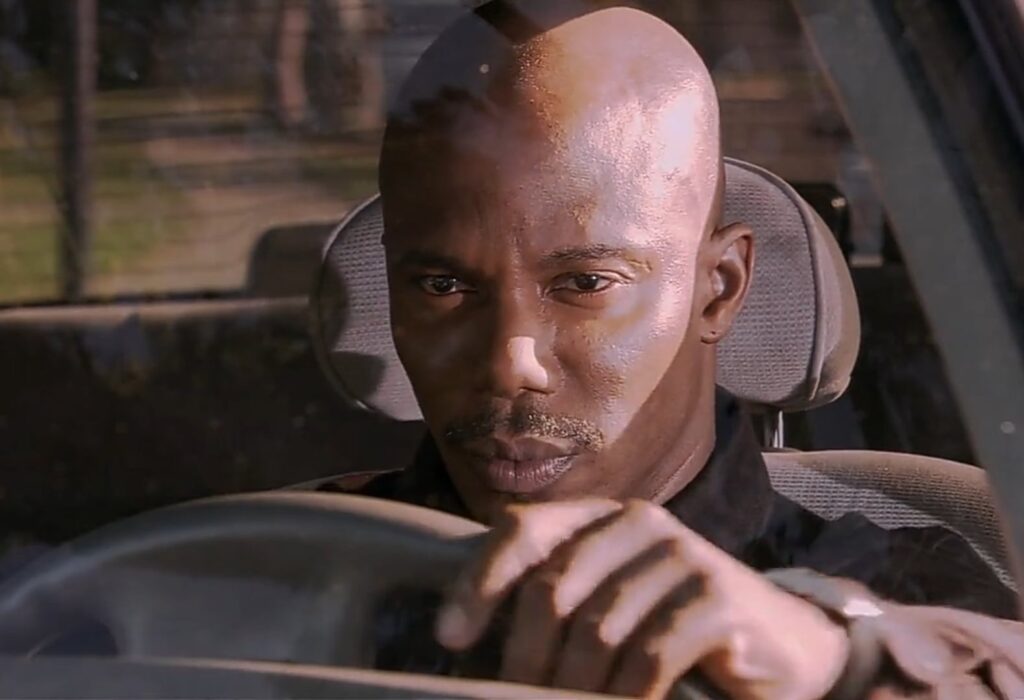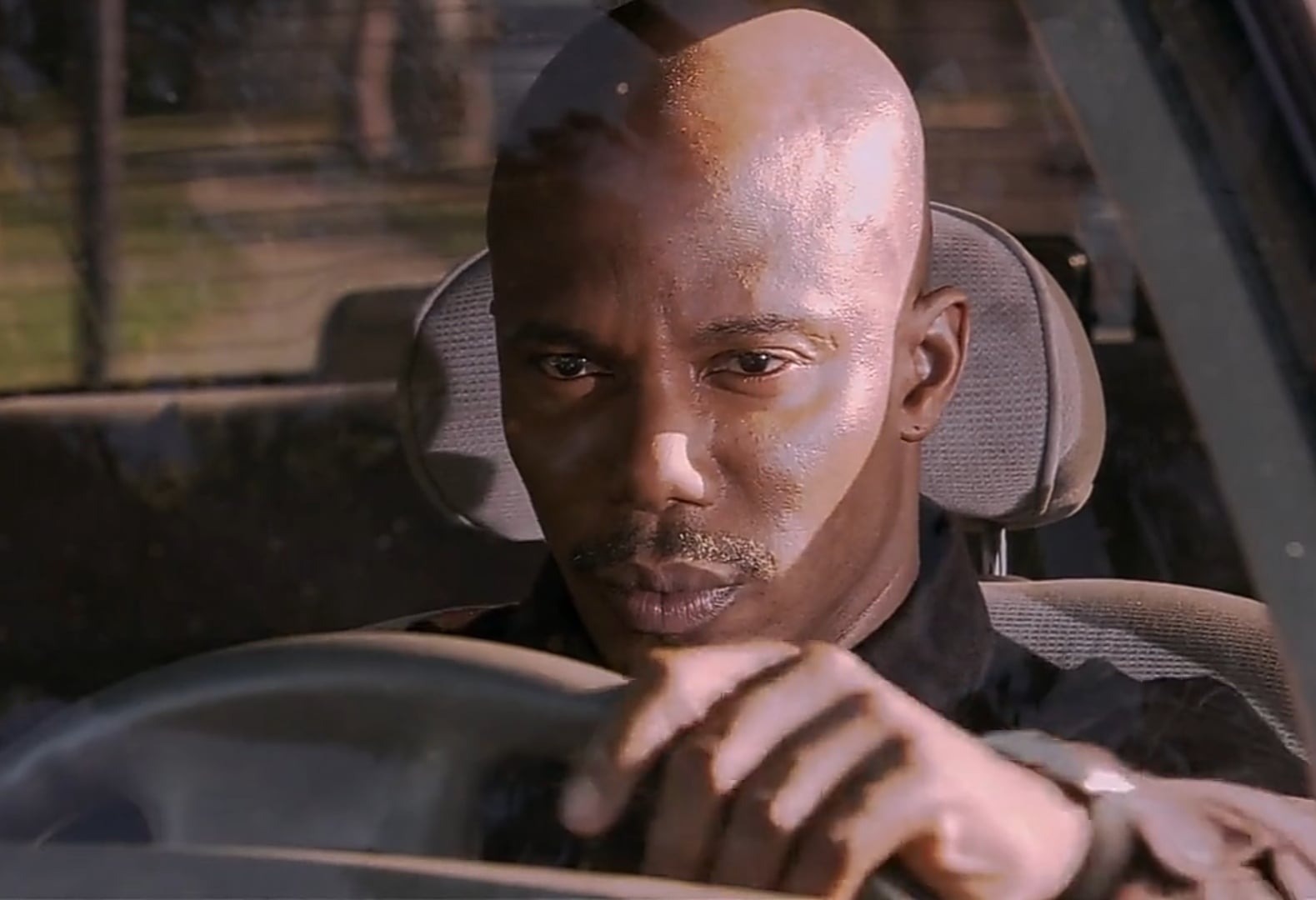
Doakes’ Dark Passenger: Unraveling the Complexity of Sergeant James Doakes in Dexter
Sergeant James Doakes, a central figure in the hit Showtime series Dexter, is more than just a foil to the titular character. His unwavering suspicion of Dexter Morgan and his relentless pursuit of justice make him a complex and compelling character. While Dexter grapples with his own “dark passenger,” Doakes’s “dark passenger,” if one can call it that, is his rigid moral code and his inability to reconcile Dexter’s seemingly perfect facade with his gut feeling that something is deeply wrong. This article will delve into the character of James Doakes, examining his motivations, his impact on the series, and the tragic consequences of his unwavering pursuit of truth regarding Dexter’s dark passenger.
The Introduction of a Nemesis
From the very beginning of Dexter, Doakes is presented as Dexter’s antithesis. While Dexter hides his murderous tendencies behind a carefully constructed persona, Doakes is blunt, direct, and intensely observant. His military background and experience as a Special Forces Ranger in Operation Gothic Serpent (the “Black Hawk Down” incident) instilled in him a strong sense of justice and a deep distrust of anything that seems too good to be true. This background provides crucial context for understanding Doakes’s actions throughout the series. He’s not just a cop; he’s a highly trained soldier who has seen the worst of humanity, making him uniquely equipped to sense the darkness lurking beneath Dexter’s surface.
Doakes’s Unwavering Suspicion
Doakes’s suspicion of Dexter isn’t based on concrete evidence initially. It’s based on intuition, observation, and a gut feeling that Dexter is hiding something. He notices Dexter’s detachment, his odd working hours, and his unusual level of comfort around crime scenes. He sees through Dexter’s carefully constructed mask of normalcy. This intuition, combined with his professional training, leads him to relentlessly pursue Dexter, making him a constant threat to Dexter’s carefully constructed double life. Doakes’s relentless pursuit stems from a deep-seated belief in justice and a commitment to protecting the innocent. He sees Dexter as a potential threat to the community and is determined to uncover the truth, regardless of the personal cost. He believes Dexter harbors a dark passenger.
The Hunt Begins: Following the Trail
Doakes’s investigation of Dexter intensifies throughout the first season. He begins to follow Dexter, monitoring his movements and digging into his past. He questions Dexter’s colleagues and friends, searching for any inconsistencies in his story. His investigation leads him to uncover some of Dexter’s secrets, but not enough to definitively prove his guilt. This cat-and-mouse game between Dexter and Doakes becomes a central conflict in the series, driving the plot forward and creating a constant sense of tension. The audience is left wondering when, and if, Doakes will finally uncover the truth about Dexter’s dark passenger. Doakes’s dedication to the case is unwavering, even when it puts him at odds with his colleagues and superiors.
Confrontation and Capture
The confrontation between Dexter and Doakes reaches a climax at the end of the second season. Doakes finally gathers enough evidence to corner Dexter, but Dexter manages to outsmart him and capture him. Dexter then keeps Doakes captive in a remote cabin. This situation forces both characters to confront each other and their respective views of justice and morality. Dexter tries to justify his actions, while Doakes vehemently condemns them. The dynamic between them is fascinating, as both men are convinced that they are on the right side of the law. Doakes refuses to believe Dexter’s justifications for his killings, seeing him as nothing more than a cold-blooded murderer. He understands the nature of the dark passenger, even if he doesn’t call it that.
Doakes’s Moral Code and the Gray Areas of Justice
One of the most compelling aspects of Doakes’s character is his unwavering moral code. He believes in absolute justice and is unwilling to compromise his principles, even when faced with difficult situations. This rigidity can be seen as both a strength and a weakness. It makes him a formidable opponent for Dexter, but it also blinds him to the gray areas of justice. Dexter, on the other hand, operates in these gray areas, justifying his actions by claiming to only kill those who deserve it. This contrast between Doakes’s black-and-white view of the world and Dexter’s more nuanced perspective creates a moral dilemma for the audience. We are forced to question our own beliefs about justice and morality. Does the end justify the means? Is it ever acceptable to take the law into your own hands? Doakes’s unwavering commitment to his principles highlights the complexity of these questions. He sees no room for compromise when it comes to justice, and his refusal to bend his moral compass ultimately leads to his demise.
The Tragic End of James Doakes
Doakes’s story ends tragically when Lila Tournay, Dexter’s unstable girlfriend, murders him in the cabin where Dexter was holding him captive. Lila sets the cabin on fire, framing Doakes for the Bay Harbor Butcher killings and clearing Dexter’s name. Doakes’s death is a significant loss for the series, as he was one of the few characters who truly understood Dexter and posed a real threat to his secret. His death also raises questions about the cost of justice and the consequences of pursuing the truth. Was Doakes’s unwavering pursuit of Dexter worth the price he paid? Did his death ultimately serve a greater purpose? These are questions that linger long after his character is gone. Dexter, despite his own dark passenger, is affected by Doakes’s death, recognizing the impact he had on his life.
The Impact on Dexter
Doakes’s death has a profound impact on Dexter. While Dexter is relieved to be free from Doakes’s relentless pursuit, he also feels a sense of guilt and responsibility for his death. He recognizes that Doakes was a good man who was simply trying to do his job. Doakes’s death forces Dexter to confront the consequences of his actions and to question his own morality. It also reinforces Dexter’s belief that he must be careful to protect his secret, as there are others who might suspect him. The memory of Doakes serves as a constant reminder of the risks he takes and the potential consequences of his actions. Dexter’s internal struggle with his dark passenger is further complicated by the weight of Doakes’s death.
Doakes as a Symbol of Justice
Sergeant James Doakes represents the unwavering pursuit of justice and the importance of upholding moral principles. He is a symbol of integrity and dedication, even in the face of adversity. While his methods may have been unconventional at times, his intentions were always noble. He believed in protecting the innocent and bringing criminals to justice, and he was willing to risk his own life to achieve those goals. Doakes’s character serves as a reminder that there are still those who are willing to fight for what is right, even in a world where morality is often compromised. His legacy lives on in the series as a symbol of justice and unwavering determination. He understood that Dexter had a dark passenger, and he dedicated his life to exposing it.
The Legacy of Sergeant James Doakes
Sergeant James Doakes remains a memorable and impactful character in the Dexter series. His unwavering suspicion, his relentless pursuit of justice, and his tragic death made him a complex and compelling figure. He served as a constant reminder of the consequences of Dexter’s actions and the importance of upholding moral principles. While he may have been seen as an antagonist by some, his character ultimately represented the unwavering pursuit of truth and justice. The character of Doakes highlights the show’s exploration of morality, justice, and the complexities of human nature. He was a man who saw the dark passenger lurking within Dexter, and his pursuit of the truth ultimately cost him his life. Even though his life was cut short, the legacy of Sergeant James Doakes continues to resonate with audiences, reminding us of the importance of integrity and the unwavering pursuit of justice. His presence forced Dexter to confront his own demons and to consider the consequences of his actions, making him a crucial element in the show’s exploration of morality and the human condition. Doakes’ character is a testament to the power of unwavering conviction and the price one might pay for standing up for what they believe is right, even when facing a formidable opponent with a carefully concealed dark passenger.
The complexities of Doakes’s character, his unwavering commitment, and the tragic consequences of his actions cement his place as one of the most compelling characters in Dexter. [See also: Dexter’s Kill Count: A Comprehensive Analysis] [See also: The Code of Harry: Dexter’s Moral Compass] [See also: Dexter’s Relationships: A Study of Connection]

